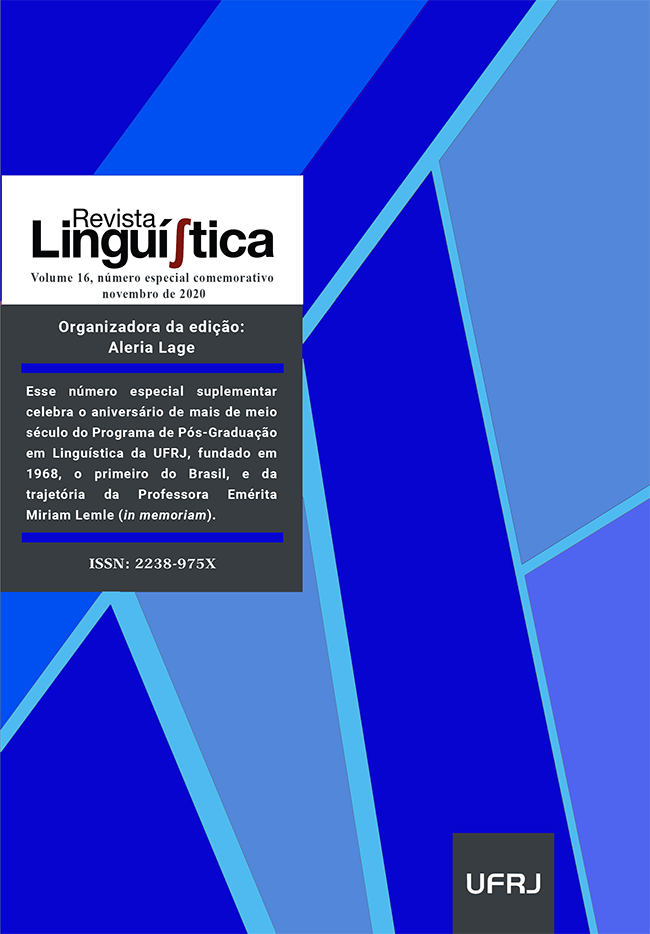The formation of the meaning in cognate verbs in Portuguese and Spanish: a generative-constructionist study
DOI:
https://doi.org/10.31513/linguistica.2020.v16nEsp.a39397Keywords:
Argument structure. Compositionality. Syntax-semantics interface. Generative Theory. Construcionist approachesAbstract
By examining the syntactic and semantic behavior of cognate words in Brazilian Portuguese and Spanish, we intend to contribute to the understanding of the division of tasks of grammar submodules at the interface between semantics and syntax. The work is guided by the constructionist theories of Distributed Morphology and the Exoskeletal Model. The question at hand is what is constant and what is variable in semantic readings of syntactic contexts of homophonous verbs in these two related languages. We have selected the pairs of mexer/mecer (wiggle), bater/batir (beat), and chegar/llegar (come) verbs to be examined in well-defined syntactic contexts. The comparative survey of syntactic and semantic coincidences and dissidences between verbs in both languages is the data set used to clarify the nature of the syntactic-semantic interface. In this corpus, there was a wide range of syntactic contexts used in all verbs except the intransitive of mecer in Spanish and the transitive of chegar/llegar in both languages. At the end of this survey, it was found that syntactic contexts are shared, but in semantic uses languages differ, results that converge to the constructionist models of Generative Grammar.
Downloads
Published
Issue
Section
License
Authors who publish in the Revista Linguí∫tica agree with the following terms:
The authors maintain their rights, ceding to the journal the right to first publication of the article, simultaneously submitted to a Creative Commons license permitting the sharing with third-parties of published content as long as it mentions the author and its first publication in the Revista Linguí∫tica.
Authors may enter into additional agreements for the non-exclusive distribution of their published work (for example, posting in online institutional or non-profit repositories, or book chapters) so long as they acknowledge its initial publication in the Revista Linguí∫tica.

The journal Revista Linguí∫tica is published by the Post-Graduate program in Linguistics of UFRJ and employs a Creative Commons - Attribution-NonCommercial 4.0 International (CC-BY-NC).









